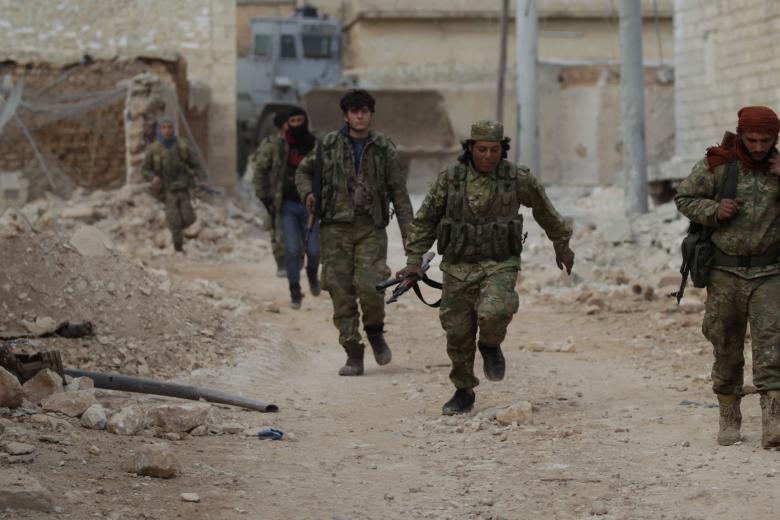Fighting occurred between jihadist opposition groups in northwest Syria on Monday, highlighting the fractious differences that remain among rebel forces in Syria.
Following the seizure of Aleppo in December 2016 by Assad government forces, armed opposition groups in northwest Syria have begun to battle over remaining territory and resources.
As Assad regime troops re-consolidate following their victory, opposition forces in the country must contend with infighting and a series of successful foreign interventions.
The Russian military campaign to support Assad continues, and is still largely focused on removing moderate opposition to the Assad regime. Notably, Russian military action against the Islamic State, particularly in its stronghold of Raqqa, has paled in comparison to its actions against moderate rebel groups; the only forces capable of assuming power in Syria should the Assad regime actually fall.
In addition to actions from Russia, the United States, and Iran, Turkish-backed rebels have made significant progress in the country’s north to secure the town of al-Bab.
Turkey has intervened under the guise of eliminating terrorist groups like the Islamic State from threatening Turkey’s southern border. Their campaign launched in August 2016, called “Operation Euphrates Shield,” has employed Syrian rebels with the cooperation of Turkish air support, heavy weapons, and special forces.
The Turkish campaign has also targeted Kurdish militant groups, part of their ongoing effort in response to an uptick in terrorist attacks inside Turkey. It’s likely Turkey seeks to destroy their Kurdish enemies prior to any sort of larger power vacuum that will occur with the collapse of Islamic State forces inside Syria.
What remains unclear is how the Turkish-backed rebels encircling al-Bab from the north will interact with Assad forces approaching al-Bab from the south.
With the Islamic State steadily losing fighters and territory—they have made no substantive gains since 2015—the confluence of foreign interventions and the myriad Syrian opposition groups will have the difficult task of sorting out allegiances and territory once ISIS is finally pushed from Raqqa and Mosul.
Image courtesy of the BBC
Already have an account? Sign In
Two ways to continue to read this article.
Subscribe
$1.99
every 4 weeks
- Unlimited access to all articles
- Support independent journalism
- Ad-free reading experience
Subscribe Now
Recurring Monthly. Cancel Anytime.











COMMENTS